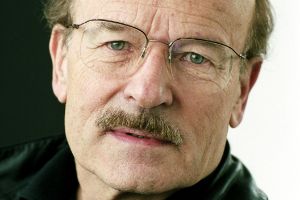Lecture
Volker Schlöndorff
Do People Need an Identity?
Experiences from Four Decades
Introduction: Joachim Sartorius

Volker Schlöndorff © Iko Freese / DRAMA
A lecture by the film director
Volker Schlöndorff’s films feature people subjected to grinding social pressures. They combine technical perfection with a broad range of aesthetic approaches. Schlöndorff’s credo is that “cinema should tell a story straight out of our lives. It should be about the society and people around us, our urban surroundings, our music.”
Volker Schlöndorff grew up in post-war West Germany, then lived for several years in France, where he worked as an assistant for Louis Malle, Jean-Pierre Melville and Alain Resnais. He became a pioneer of New German Cinema – and one of its best directors. He also more recently made a successful move into the business of film management, working as the director of the former East German DEFA Studios in Babelsberg from 1992 to 1997.
Schlöndorff’s aim is to make successful popular cinema, often by means of literary adaptations. His work is influenced by his passion for politics. His 1966 film Young Torless, based on a novella by Robert Musil, was the first to bring him international acclaim. In 1979, he was awarded the Palme d’Or in Cannes and the Oscar for best foreign film for his adaptation of Günter Grass’s novel The Tin Drum. In the mid-1980s he went to New York where he filmed Death of a Salesman with Dustin Hoffman. “I don’t feel comfortable working in the genre of the ‘true story’. I am more a man of fiction”, Schlöndorff once said. But where does the ‘story’ end and the ‘true story’ start? One of his most recent works, The Ninth Day, starring Ulrich Matthes and August Diehl, is based on the diaries of the priest Jean Bernard, who was deported to Dachau concentration camp by the Nazis.